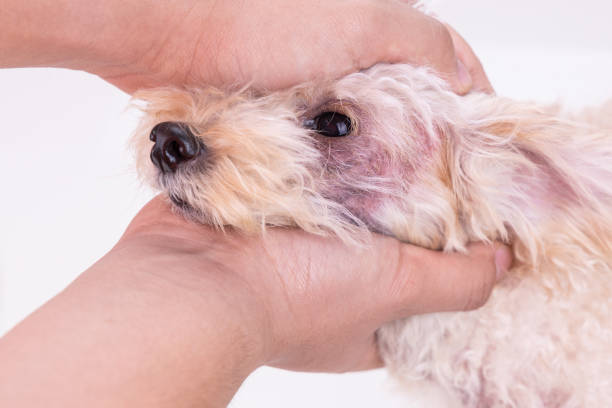As a dog owner, you’re probably already aware that your four-legged friend needs a different diet from you. Whilst there are several foods fit for human consumption that dogs can’t eat, there’s also a host of others they can enjoy. Let’s examine ten such foods that are safe for dogs, and explore why they are good for your pet!
Including, of course, a few foods that you should never feed your dog
Foods That Dog CAN Eat
Rice: All Breeds and Ages
Brown rice is typically the best and most nutritious option for feeding your pup cooked or raw rice; however, any form is generally okay in moderation. Rice contains vitamins and minerals such as vitamin B, niacin, phosphorous, magnesium, and potassium. These nutrients are essential for your dog’s energy levels, digestive health, bone growth, and overall wellbeing.
Bananas: All Breeds and Ages
Did you know that bananas are one of the healthiest fruits out there? They’re full of vitamins and minerals that can also be great for your dog’s health, such as vitamin C, B6, potassium, magnesium, fibre, and antioxidants. Bananas can also promote healthy digestion – a must-have for any pup!
Blueberries: All Breeds and Ages
Believe it or not, blueberries are another excellent fruit option for dogs! Blueberries can be full of antioxidants which promote a healthy immune system and vision. They’re also known to promote heart health, lower blood cholesterol levels, and reduce digestive inflammation.
Broccoli: All Breeds and Ages
Did you know that broccoli is one of the world’s super-vegetables? It’s full of antioxidants, vitamin C, fibre, and more! Broccoli is also known to promote healthy circulation, which can be great for dogs with heart conditions. Just note that while broccoli alone may not be too harmful to your pup, cheese sauce or other fatty toppings could lead to weight-related issues such as obesity and heart disease.
Apples: All Breeds and Ages
Raw and cooked apples should be okay for your dog – as long as they’re cut into pieces small enough to avoid choking hazards! Like other fruits, raw apples will provide your pup with fibre and water. They also contain vitamin C and antioxidants, which promote a healthy immune system.


Carrots: All Breeds and Ages
Like apples, carrots are another healthy option for your dog to enjoy. They’re low in calories but high in fibre, vitamins, and minerals such as vitamin A, beta-carotene (a type of antioxidant), potassium, calcium, magnesium, phosphorus, and so on! Carrots can be an excellent way to promote healthy digestion, vision, and the immune system. Please note that dogs shouldn’t eat carrots with large amounts of salt or sugar added to them.
Peanut Butter: All Breeds and Ages
Okay, so you probably already know that peanut butter is one of your dog’s best friends. But did you know that it’s also full of several healthy nutrients? Like many other nut kinds of butter, peanut butter is an excellent source of protein and fibre. It can also promote healthy brain development, a robust digestive system, and cardiovascular health.
Beef: All Breeds and Ages
Yes, dogs can eat meat! Natural beef contains protein and healthy nutrients such as vitamin B6, niacin, phosphorus, iron, selenium, zinc, and riboflavin. It’s also known to promote healthy teeth and gums; however, you should take care to remove any bones before feeding them to your pup.
Watermelon: All Breeds and Ages
While watermelons are known for being healthy for humans, dogs can also benefit from eating them. Like other fruit options, raw watermelon contains fibre and vitamin C. It can also promote healthy digestion and the renal system. Just be aware that some people do feed their dog seedless watermelon, so it’s best to avoid giving your pup any of the seeds.
Pizza: All Breeds and Ages
Yes, pizza and dogs do go together! Like other types of cheese, pizza is full of calcium. It can also promote healthy bones and strong muscles. Just be sure that your pup doesn’t develop an unhealthy fixation – if they overeat pizza, it could lead to weight gain.


Foods That Dogs CANNOT Eat
Grains: All Breeds and Ages
Grains are a type of carbohydrate which provide energy for your dog. However, it’s important to note that dogs cannot digest large amounts of grains; this includes wheat bread, rice, pasta, and pretty much anything with ‘wheat’ in its name.
Chocolate: All Breeds and Ages
As I mentioned above, chocolate is one thing you should keep away from your dog. Chocolate contains caffeine, which can be very dangerous for dogs. But don’t worry – you can always eat dark chocolate instead! Just remember that if your pup likes to steal any food off the table, it’s best not to leave anything containing chocolate unattended.
Coffee/Tea: All Breeds and Ages
While humans love their coffee and tea, avoiding giving your pup too much caffeine is best. Why? Canine experts agree that most dogs cannot digest caffeine in any form. Keep an eye on your dog’s behaviour if you plan to share your coffee or tea.
Onions: All Breeds and Ages
Like chocolate, onions are another type of food that you should keep away from your pup. Onions contain a substance called N-propyl disulfide, which may lead to Heinz Body Anemia in canines.
Raisins: All Breeds and Ages
While it’s okay for your dog to have a few raisins, it’s best not to feed them too many. Why? According to pet experts, just one cup of raisins contains enough toxins to put your pup at risk for kidney failure.
Mushrooms: All Breeds and Ages
Like onions, mushrooms contain N-propyl disulfide, which can cause Heinz Body Anemia in dogs. Mushrooms are also chock full of minerals that may upset your pup’s stomach – so it’s best to avoid giving them any mushrooms altogether.
Dairy Products: Some Breeds and Ages
While most dogs cannot digest dairy products like cheese or milk, other breeds might tolerate small amounts of cheese or plain yoghurt. Just keep in mind that if your dog has any genetic predispositions to the following conditions:
- Lactose intolerance: If your pup has a milk allergy, you should avoid giving them any dairy products.
- Digestive issues: You should avoid giving your dog certain types of cheese that can lead to digestive problems like diarrhoea and constipation.
Avocados: Some Breeds and Ages
Just like chocolate, it’s best not to feed your pup any avocado. Why? You may have heard that avocado can promote healthy hair growth in dogs – which is technically accurate. But keep in mind that the high oil content found in avocados (which is good for human skin) can lead to vomiting, diarrhoea, and loose stools in your pup.
Cheese: Some Breeds and Ages
Like most dairy products, you should avoid feeding your dog too much cheese because of the high-fat content found in it. But certain types of cheese can promote healthy joints – which is why vets recommend low-fat cottage cheese for older dogs.
Tuna: Some Breeds and Ages
While it may be difficult, you should try to resist the temptation of giving your pup a piece of tuna when they look at you with those adorable puppy dog eyes! That’s because tuna contains high levels of mercury that can lead to poisoning in pups.


Conclusion
Dogs are pretty much man’s best friend, but it can be hard to keep them from eating the wrong foods! Luckily for you and your pup, we’ve compiled a list of 10 types of food that dogs can and cannot eat. We hope this article helps you figure out what to feed your dog next time they start drooling at the dinner table or begging for scraps off your plate. If all else fails – remember: “it’s always safest not to give any chocolate.”


